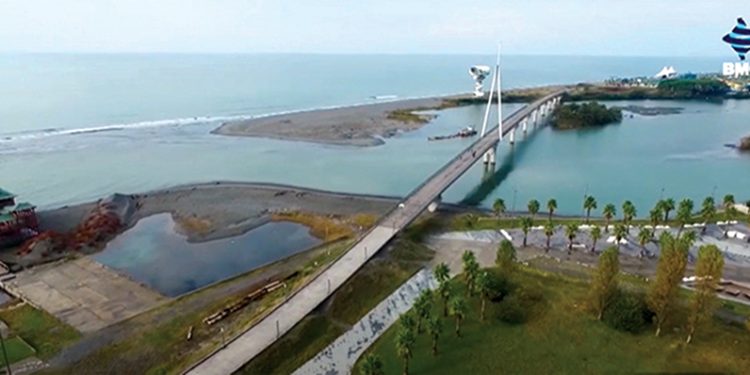**Controversy Surrounds Georgia‘s Plans for a New Black Sea Port**
Georgia has been planning to build a new deep-sea port on the Black Sea for many years. The project is expected to cost $2 billion and will be led by a Chinese state-controlled company, China Communications Construction Company (CCCC). However, the choice of Chinese finance has raised concerns among some in Georgia.
**Concerns Over Financial Risks**
The main concern is that the port may not generate enough revenue to cover its costs. If this happens, it is unclear who will bear the costs. The Georgian government plans to hold 51% of the project, while CCCC will hold 49%. This has led some to worry that Chinese taxpayers may be on the hook for any losses.
**Sri Lanka’s Example**
Some have pointed out that Georgia’s decision to select a Chinese company to lead the port project is similar to Sri Lanka’s experience with building a new port. Sri Lanka’s government was unable to service its debt and had to accept Chinese control of its ports as part of a bailout package.
**China’s Growing Maritime Reach**
Despite these concerns, China has become a major player in global shipping. It controls the movement of goods and leads on port automation, shipping IT systems, and ship financing. China has invested in two-thirds of the world’s largest container ports and holds a majority stake in two key European ones.
**China’s Strategy**
China’s strategy is to create an efficient and well-coordinated transport-trade system by investing in overseas ports. This is part of its Belt and Road Initiative (BRI), which aims to connect China with other parts of the world through trade routes. By securing control of ports, China can dominate international shipping and trade.
**Impact on Georgia**
While closer relations with Beijing have had a limited impact on Georgia’s economy, Chinese exports to the country are expanding. However, Georgia’s exports to China are declining and have very little local added value.
**Concerns for Europe**
Some in Europe are concerned that China’s growing maritime reach is a threat to their economic interests. By controlling ports, China can dominate international shipping and trade, giving it significant geoeconomic influence over the global flow of goods.




